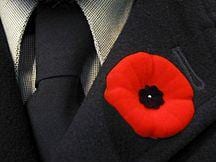Modest and respectful, just a few words. I’ve no doubt it’s exactly what he requested:
“Howard C … 1920-2007. Passed away Thursday, August 23, 2007. Respecting Howard’s wishes there will be no visitation or service. For those who wish to do so, donations to a charity of your choice will be appreciated.”
No fuss. Spare of the customary details and possibly disingenuous connections: “beloved son of the late,” “dear brother of,” “sadly remembered by.” I’m sure there was a good friend who followed Howard’s end-of-life wishes to a tee. He always had plenty of good friends.
I wasn’t a good friend. Otherwise I wouldn’t have let him pass out of my life more than 20 years ago. He was an employer, belonged to another generation. I was young and out and about in the fairground of downtown Montreal.
Then I moved thousands of miles away. It took five years for me to get the news, stumbling upon his obituary, those troubling few dozen empty words.
Howard was anything but a blank canvas. He was a veteran of the Second World War. Sent home badly wounded, he always walked strongly with his lame leg.
But he actually came back from the war with much more: he brought home another soldier. A lover and a companion, they would live together for 25 years.
Details of his life that he shared with his friends. Howard included me in the storytelling, and so I carry them with me. A kind, honest, no nonsense sort of guy. He told me once I had an innocent look and to never lose it — I don’t know about that.
He was conservative in appearance, quite unremarkable, “straight-appearing” as it was common to say in those days. His apartment had the best of traditional décor: dark mahogany tables, Duncan Phyfe chairs, crystal chandeliers, brass lamps, burgundy velvet draperies, expensive bottles of after-shave meticulously arranged on the bathroom vanity. All in all, a pretty settled lifestyle.
But shared tastes for the “good” things in life perhaps set the stage for the downfall of Howard’s long-term relationship.
His companion worked for a bank and was up for a big promotion. It would have been about 1970, and there was a problem. A requirement for the management position was that the successful candidate must be a married man.
Despite their quarter-century relationship, Howard’s partner decided to take the leap. He proposed to an available young woman. Marriage, executive promotion, house and baby quickly followed. Too quickly, it would seem; a year later Howard’s friend dropped dead of a heart attack.
The young wife got everything, Howard said, presumably including a veteran’s widow pension. He explained the unfairness of it all in monetary terms: one year of marriage to a woman effaced 25 years of love between two men.
Howard had a good long life afterward. A good enough job and income, on top of his veteran’s disability cheques. A maniac for baseball and beer. Evenings at the Peel Pub and Dominion Tavern. Fancy dinner parties for friends. He could afford to pay a young man to clean his apartment, and that was me. A half-dozen large ashtrays to empty. All those cigarettes; he survived even that.
As the obituary did tell me, he lived to a great 87 years of age. I was grateful to read that.

 Why you can trust Xtra
Why you can trust Xtra


